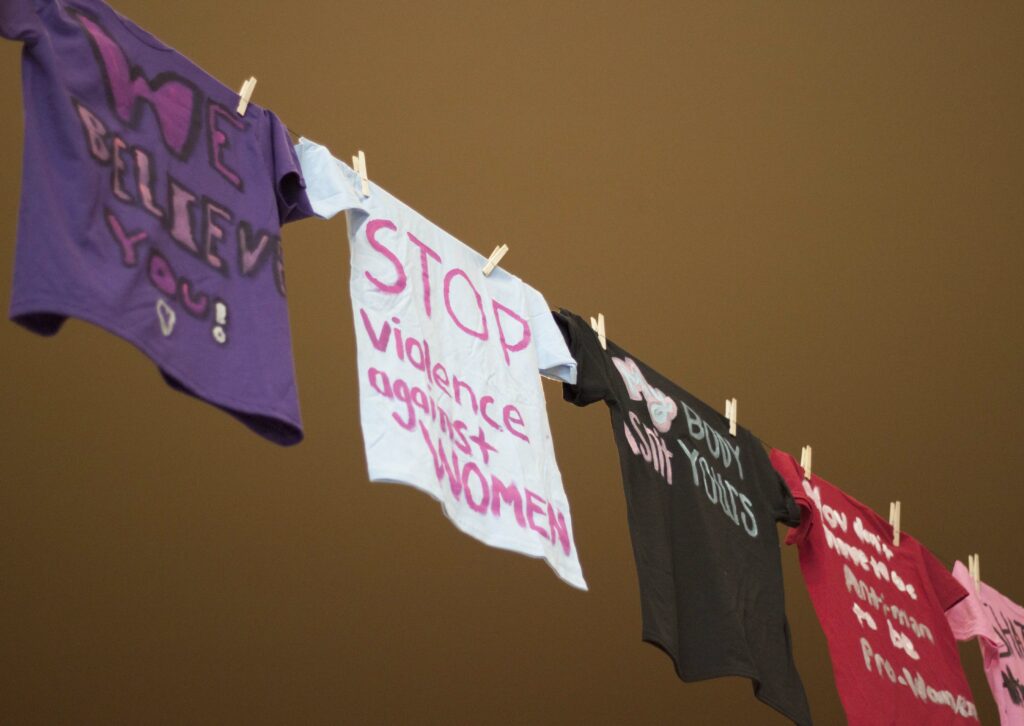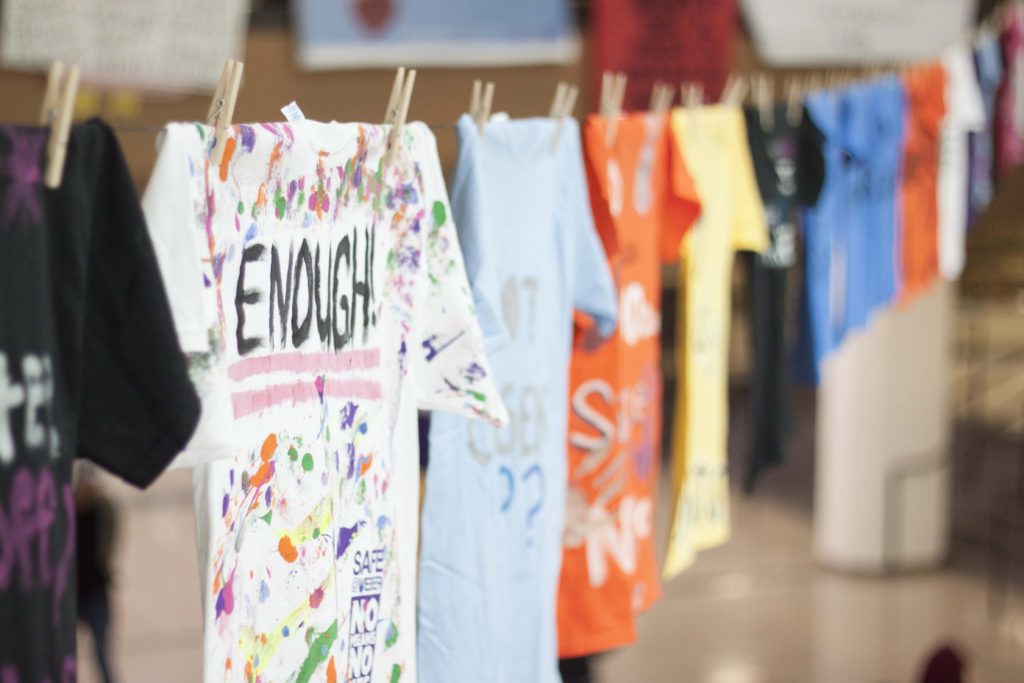
Dozens of T-shirts are hanging on clotheslines in the Shepherd Union Atrium and Stewart Wasatch Hall, each painted with a message to honor survivors of domestic and sexual violence.
The string of clothing is the Women’s Center’s way of commemorating Domestic Violence Awareness Month, which is observed throughout October.
The exhibit is part of a nationwide program called The Clothesline Project, an initiative that aims to raise awareness about violence and its survivors. The project uses clothing as a canvas for anyone affected by personal abuse to share his or her story.
“Usually, people feel in situations of domestic violence or sexual assault feel like they were silenced,” said Lara Vo, Women’s Center strategic initiatives and social media coordinator. “They feel like they weren’t allowed to have a voice. Giving them this pathway for them to not only be heard but have control of what they’re saying, makes a huge difference.”
In the weeks leading up to the exhibit, students had the opportunity to contribute to the project by depicting their experiences with violence or abuse on shirts.
Participants decorated T-shirts with words like “We believe you,” and “Stop violence against women.” Some shirts are painted with pictures instead of words, including one featuring an image of a volcano, which the artist described as a volcano of emotions.
In addition to the healing element the project can provide to survivors, Vo said she wants people to feel like they can talk about the taboo subjects of violence and abuse.
“Domestic violence and sexual assault are these subjects that are really hard to talk about, and so it can be kept kind of quiet,” Vo said. “It’s still a very huge problem. The reason we have hung the shirts up in such a public place is to be able to start a conversation in more people’s realm.”
The Clothesline Project is hanging in places that students often pass through or walk by, and Vo said she hopes this will help the campus community’s willingness to rectify change.

Selma Melero, the Women’s Center art gallery coordinator, said college campuses can become saturated by statistics and numbers that represent those who are affected by sexual violence. But she said numbers can sometimes fail to convey true meaning.
This is where The Clothesline Project differentiates itself, and Melero said the personalization of the project makes it more powerful. “A lot of these stories are first-hand experience,” she said. “It’s not a statistic. It’s someone’s voice and experience.”
The shirts will serve as a reminder of the effects of personal violence until the exhibit is taken down on Oct. 15. But Katie Byrd, the Women’s Center operations coordinator, said she hopes the project will leave a lasting impact.
“I think a lot of people don’t know a whole lot about the Women’s Center and don’t know a whole lot about the issue of domestic violence,” Byrd said. “We just really want to empower students and empower survivors to get the help that they need or be able to support other people.”



















